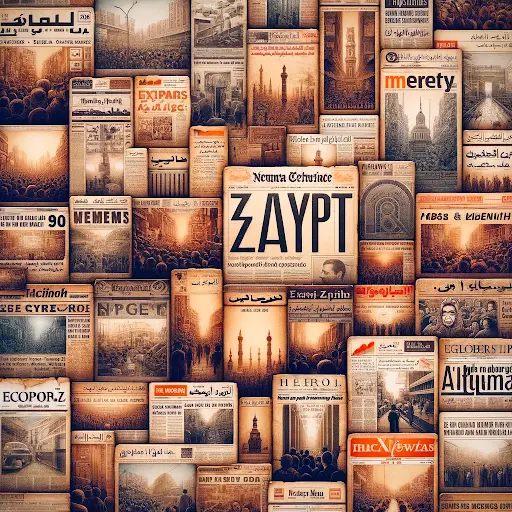Short Summary of Zaat Novel
Updated: 11 February 24
10
Introduction
In the vast landscape of modern Arabic literature, “Zaat” by Sonallah Ibrahim emerges as a pivotal work, shining a light on the intricacies of Egyptian life amidst political and social upheaval. This novel is not just a story; it’s a journey through the eyes of its protagonist, Zaat, as she navigates the challenges of a changing Egypt from the 1970s through the 1990s.
Ibrahim, with his distinctive narrative style, offers readers a unique blend of fiction and documentary, making “Zaat” a must-read for those intrigued by the dynamics of Middle Eastern societies or the power of personal resilience against the backdrop of national transformation.

Author’s Background
Sonallah Ibrahim, a renowned figure in Arabic literature, is celebrated for his experimental and bold narrative techniques. Born in 1937 in Cairo, Ibrahim’s literary career is marked by his keen observation of sociopolitical contexts, often critiquing the socio-economic policies and political corruption in Egypt.
His experiences, including imprisonment in the 1960s due to his political beliefs, have deeply influenced his writing, infusing it with authenticity and a profound understanding of Egyptian life. His accolades and recognition within the Arab literary community and beyond underscore his authority and expertise in depicting the Egyptian social fabric.

Main Content of the Review
Summary
“Zaat” delves into the life of an Egyptian woman, chronicling her personal and societal struggles over two decades. Through Zaat’s eyes, readers experience the impact of political and economic changes in Egypt, including the effects of neoliberal policies and increasing social disparities.
Ibrahim intersperses the narrative with actual newspaper clippings from the time, blurring the lines between fiction and reality, and providing a rich context for Zaat’s story. This technique not only enriches the narrative but also anchors the reader firmly in the historical realities that the characters navigate.

Critical Analysis
One of the novel’s strengths is its authentic portrayal of Egyptian society, offering insights into the everyday lives of its citizens. Ibrahim’s use of real newspaper excerpts enhances the narrative’s realism, making it a valuable document of its time.
However, some readers might find the blending of fiction with actual events challenging, as it requires a deeper understanding of the historical context. Compared to other works in the genre, “Zaat” stands out for its documentary-style storytelling, which, while innovative, might not cater to all tastes.

Personal Reflection
Reading “Zaat” was an enlightening experience for me. Ibrahim’s skillful weaving of a personal story with the broader socio-political landscape of Egypt provided a compelling insight into the challenges faced by individuals in the midst of national upheaval. It’s a reminder of the resilience of the human spirit and the complexity of societal change.

Recommendation
“Zaat” is highly recommended for readers interested in Middle Eastern literature, social history, or the exploration of personal identity within a rapidly changing society. Its depth and narrative style offer a unique perspective on the impact of political and economic shifts on individual lives.
Conclusion
“Zaat” by Sonallah Ibrahim is not just a novel; it’s a window into the soul of Egypt during a period of significant change. Through the life of its protagonist, Ibrahim masterfully portrays the intersection of personal and societal transformation.
This book is a testament to the enduring spirit of individuals facing the tides of change. For those looking to understand or appreciate the nuances of Egyptian life and literature, “Zaat” is an indispensable read.
“Zaat” stands as a profound commentary on the resilience of the human spirit amid the relentless march of history, making it a compelling read for those intrigued by the complexities of life in a changing world.

FAQs
What genre does “Zaat” belong to?
“Zaat” blends fiction with documentary elements, offering a unique genre-crossing reading experience that explores societal and personal changes in Egypt.
Is “Zaat” suitable for readers unfamiliar with Egyptian history?
While beneficial, prior knowledge of Egyptian history is not required. The novel provides enough context to engage and inform readers new to the subject.
What makes Sonallah Ibrahim’s writing style unique?
Ibrahim’s narrative technique, which integrates fictional storytelling with actual newspaper clippings, offers a distinctive and immersive reading experience.
How does “Zaat” reflect on Egyptian society?
The novel examines the effects of political, economic, and social changes in Egypt from the 1970s to the 1990s through the life of its protagonist and the inclusion of real-life events.
Where can I find more works by Sonallah Ibrahim?
Sonallah Ibrahim has authored several influential works in Arabic literature, many of which have been translated into various languages. Look for them at your local library, bookstore, or online retailers specializing in world literature.
Author Bio of the Reviewer
Welcome to My Review Book (MRB) – a haven for book enthusiasts and a platform dedicated to diving deep into the essence of literature. Our team, with diverse backgrounds in literature, history, and cultural studies, brings a wealth of knowledge and passion to our reviews. We strive to connect readers with books that will not only entertain but also enrich and inform.
Please Write Your Comments